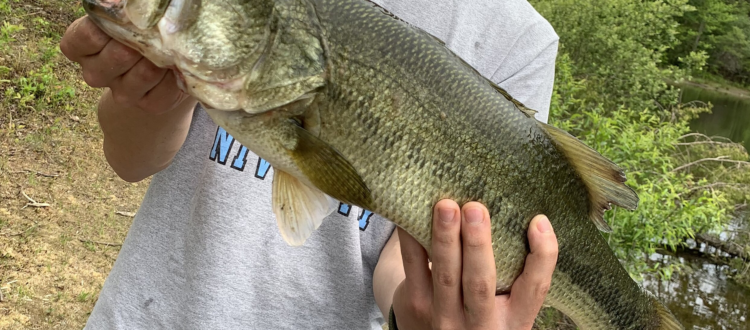The Alabama Department of Public Health (ADPH) released its 2025 fish-consumption advisory update, based on contaminant data collected last fall by the Alabama Department of Environmental Management, the Tennessee Valley Authority and the Department of Conservation and Natural Resources. Anglers along both the Black Warrior and Cahaba Rivers should take note: elevated mercury levels in certain bass species have prompted new eating restrictions in parts of Hale and Perry counties.
In Hale County, the Black Warrior River at Moundville (river mile 302.7) carries an advisory for largemouth bass. ADPH recommends that adults limit their consumption of cooked largemouth bass from this stretch to no more than two six-ounce meals per month. For children and women who are pregnant or nursing—who are more sensitive to mercury’s effects— the department advises even greater caution or choosing other species.
Perry County’s advisory pertains to the Cahaba River at Highway 183, where spotted bass tested above safe levels. In this location, ADPH issues a “Do Not Eat Any” advisory for spotted bass, meaning anglers should refrain entirely from eating this species. Other fish from that section of the Cahaba River currently carry no restrictions, but fishermen are urged to follow general guidelines: remove skin and fat, trim away dark meat, and vary the types of fish they consume.
These advisories do not ban fishing; rather, they offer guidance to protect public health over the long term. Mercury accumulates in freshwater fish, particularly predatory species like bass, and can affect neurological development in young children and fetuses, as well as pose risks to cardiovascular health in adults.
A standard “meal” is defined as six ounces of cooked fish (eight ounces when raw). Anglers should weigh or measure their catch before preparation to ensure meal sizes stay within the department’s recommendations. For most other waters in Hale and Perry counties—including all stretches of the Black Warrior and Cahaba rivers outside the highlighted zones—no consumption restrictions have been issued at this time.
The full list of advisory locations and species limits is available online at www.alabamapub-lichealth.gov/tox/fish-advisories.html. Fishermen with questions about specific creeks, lakes or reservoir arms can consult that directory or contact ADPH’s Environmental Toxicology Section for more detailed guidance.

